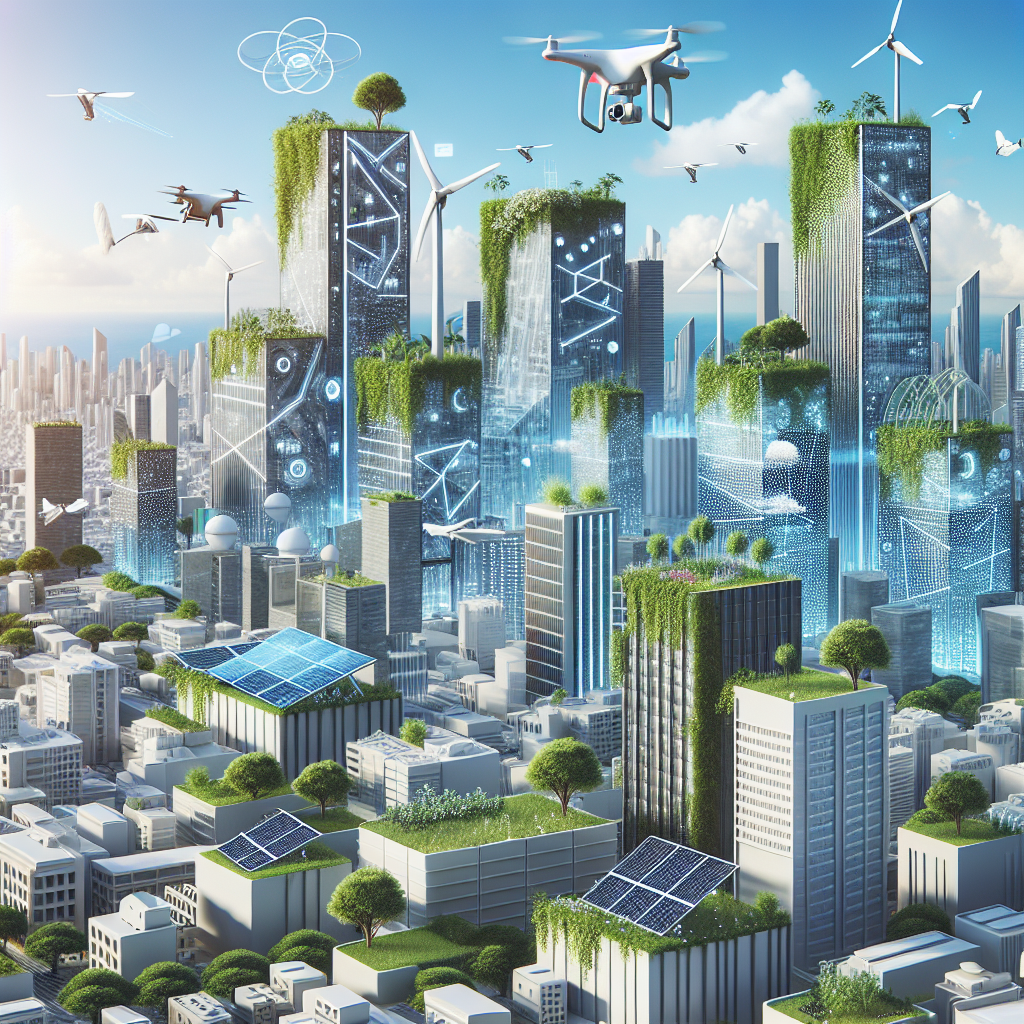The Role of AI in Creating More Efficient Building Systems
Artificial Intelligence (AI) is revolutionizing various industries, and the construction sector is no exception. AI technologies are playing a significant role in creating more efficient building systems that not only save time and money but also help in reducing energy consumption and carbon footprint. From design and planning to construction and maintenance, AI is transforming the way buildings are built and managed. In this article, we will explore the various ways in which AI is being used to create more efficient building systems and the benefits it brings to the construction industry.
1. Design and Planning
AI algorithms are being used to optimize building design and layout to maximize space utilization and energy efficiency. By analyzing vast amounts of data, AI can suggest design changes that can lead to better lighting, ventilation, and overall comfort for occupants. AI can also help in identifying potential structural issues and optimize material usage, thereby reducing waste and costs.
2. Construction
AI-powered robots and drones are being used in construction sites to perform tasks that are dangerous or repetitive for humans. These robots can work around the clock and can be programmed to perform tasks with precision and efficiency. AI can also help in managing construction schedules and resources by analyzing data and predicting potential delays or issues.
3. Maintenance
AI can be used to monitor building systems and predict maintenance needs before they become critical. By analyzing data from sensors and building management systems, AI can identify trends and patterns that indicate potential failures or inefficiencies. This proactive approach to maintenance can help in avoiding costly repairs and downtime.
4. Energy Management
AI is being used to optimize energy consumption in buildings by analyzing data from sensors and systems to identify areas where energy savings can be made. AI algorithms can adjust lighting, heating, and cooling systems based on occupancy patterns and weather conditions to ensure optimal comfort while minimizing energy usage. This can lead to significant cost savings and reduce the carbon footprint of buildings.
5. Smart Buildings
AI-powered smart building systems are becoming increasingly popular as they offer a range of benefits such as improved comfort, energy efficiency, and security. These systems can be integrated with various sensors and devices to monitor and control building operations in real-time. AI can analyze data from these systems to identify inefficiencies and suggest improvements to optimize building performance.
FAQs
Q: How can AI help in reducing construction costs?
A: AI can help in reducing construction costs by optimizing design and layout, managing construction schedules and resources efficiently, and identifying potential issues before they become critical. By analyzing data and making informed decisions, AI can help in minimizing waste and maximizing productivity, leading to cost savings.
Q: Can AI improve energy efficiency in buildings?
A: Yes, AI can improve energy efficiency in buildings by analyzing data from sensors and building management systems to optimize energy consumption. AI algorithms can adjust lighting, heating, and cooling systems based on occupancy patterns and weather conditions to ensure optimal comfort while minimizing energy usage.
Q: How can AI enhance building maintenance?
A: AI can enhance building maintenance by monitoring building systems and predicting maintenance needs before they become critical. By analyzing data from sensors and systems, AI can identify trends and patterns that indicate potential failures or inefficiencies, allowing for proactive maintenance and avoiding costly repairs.
Q: What are the benefits of AI-powered smart building systems?
A: AI-powered smart building systems offer a range of benefits such as improved comfort, energy efficiency, and security. These systems can be integrated with various sensors and devices to monitor and control building operations in real-time. AI can analyze data from these systems to identify inefficiencies and suggest improvements to optimize building performance.
In conclusion, AI is playing a crucial role in creating more efficient building systems by optimizing design and layout, managing construction schedules and resources, enhancing maintenance practices, improving energy efficiency, and enabling smart building systems. The integration of AI technologies in the construction industry is transforming the way buildings are built and managed, leading to cost savings, energy efficiency, and improved comfort for occupants. As AI continues to evolve, we can expect to see further advancements in creating sustainable and efficient building systems that benefit both the environment and the economy.

